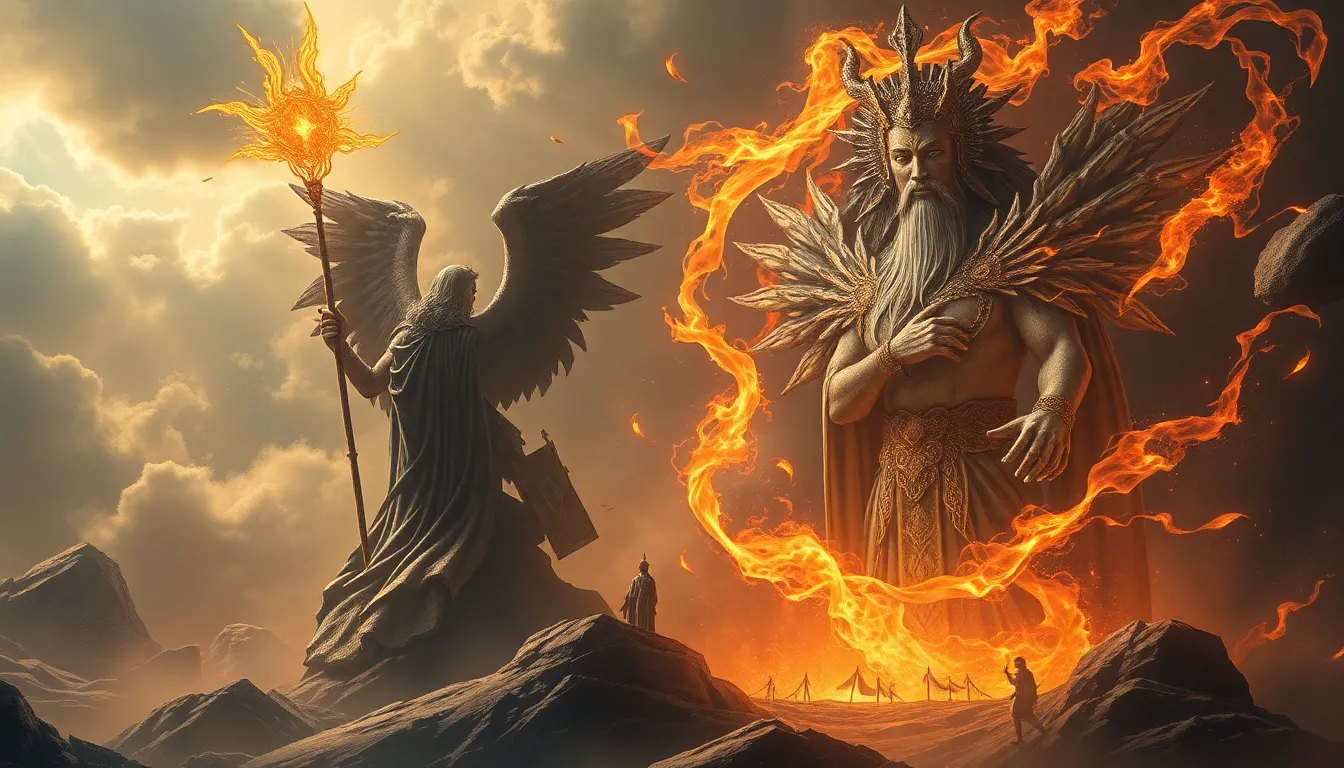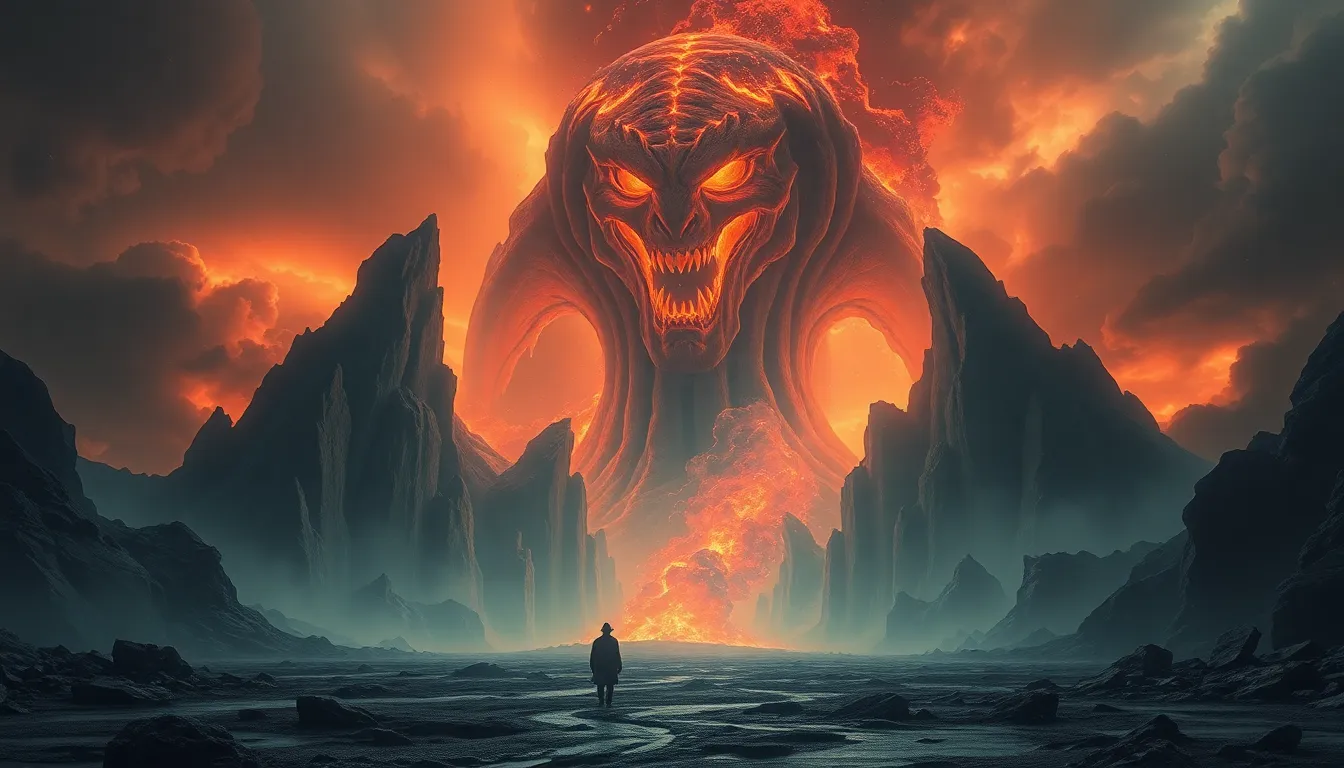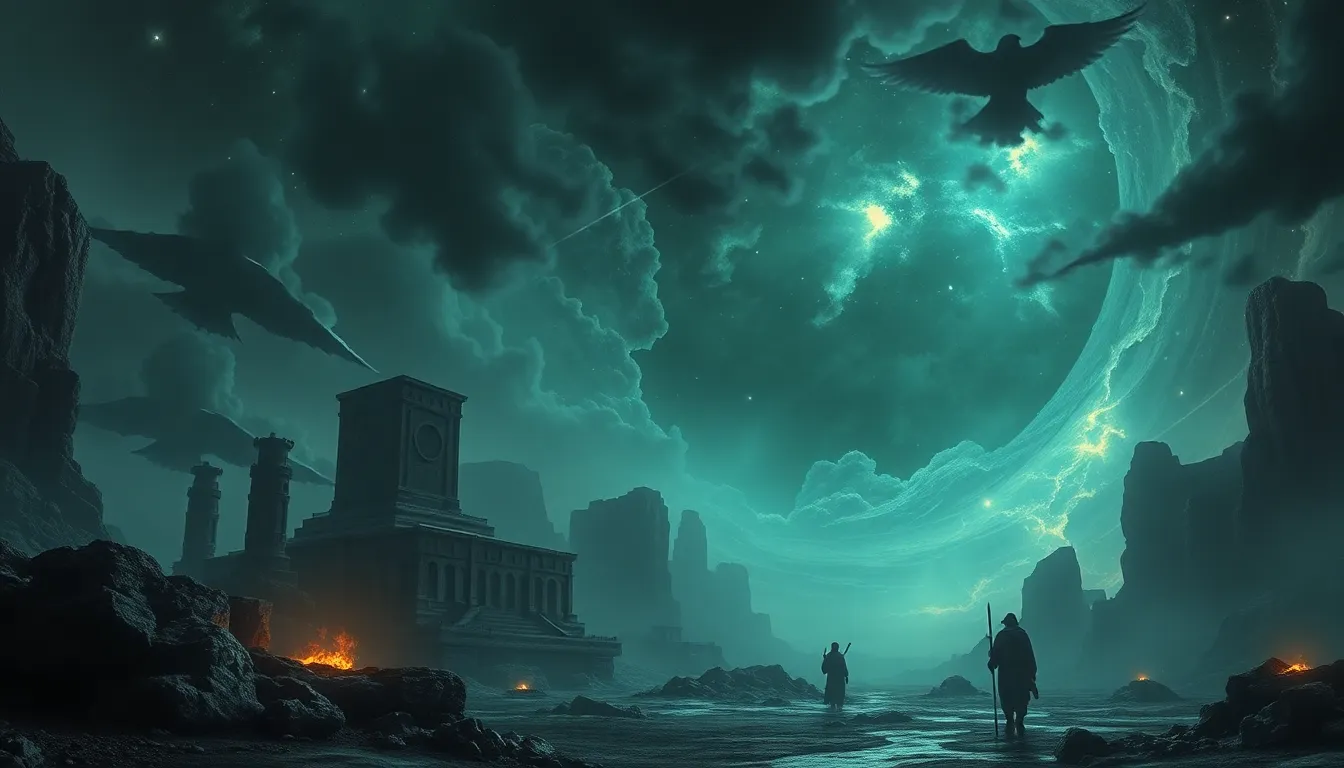Ancient Deities and Their Prophecies: Myths of Destiny
I. Introduction to Ancient Deities
Ancient deities were central figures in the mythologies of various cultures, representing forces of nature, human emotions, and fundamental aspects of existence. These gods and goddesses were often revered as powerful beings who influenced the lives of mortals and the course of events. Their significance can be seen in the enormous influence they wielded over societal norms, values, and rituals.
Prophecies played a crucial role in mythology, serving as a bridge between the divine and mortal realms. They not only foretold future events but also provided insight into the will of the gods. The intersection of destiny and divine intervention is a recurrent theme, suggesting that while deities may have a hand in shaping outcomes, human actions and choices still hold substantial weight.
II. The Concept of Destiny in Ancient Mythology
Destiny, often intertwined with the concept of fate, refers to the predetermined course of events in the universe. Different cultures have their interpretations of fate and destiny, but a common thread runs through these beliefs: the idea that some aspects of life are beyond human control.
The tension between free will and predestination is a central theme in many ancient myths. While some narratives suggest that individuals can alter their fates through their actions, others posit that the gods have already set a path for them, leaving little room for personal agency.
Oracles and seers played a significant role in ancient societies, serving as intermediaries between the divine and humanity. They offered insights into the future and guidance based on divine will, often leaving mortals to interpret their cryptic messages.
III. Prominent Ancient Deities Associated with Prophecy
A. Greek Deities: Apollo and the Oracle of Delphi
Apollo, the Greek god of prophecy, music, and healing, is perhaps best known for his association with the Oracle of Delphi. This sacred site was considered the most important oracle in the ancient world, where individuals would seek guidance from the Pythia, the priestess of Apollo.
- Apollo’s role as the god of prophecy: Apollo was believed to possess the ability to reveal the future and communicate the will of the gods.
- The significance of the Oracle of Delphi: The Oracle provided cryptic prophecies that shaped the decisions of leaders and common people alike, influencing wars, colonization, and personal choices.
B. Roman Deities: Janus and the Duality of Time
In Roman mythology, Janus was the god of beginnings, gates, transitions, and time. Often depicted with two faces, he embodies the duality of past and future, allowing him to see both directions simultaneously.
- Janus as the god of beginnings and transitions: Janus was invoked at the start of new ventures, ensuring favorable outcomes.
- Prophetic insights into future events: His ability to foresee potential outcomes made him a vital figure in decision-making processes.
C. Egyptian Deities: Thoth and the Book of Destiny
Thoth, the Egyptian god of wisdom, writing, and magic, played a key role in the maintenance of cosmic order. He was credited with the creation of writing and was often depicted as a scribe recording the fates of individuals in the afterlife.
- Thoth as the god of wisdom and writing: His knowledge allowed for the recording of prophecies and the guidance of souls.
- The concept of Ma’at and cosmic order: Ma’at represented truth and justice, and Thoth’s role was to ensure that the universe remained in balance, reflecting destiny’s inherent order.
IV. Prophecies in Mesopotamian Mythology
Mesopotamian mythology is rich with stories of divine foresight and prophecy. The Epic of Gilgamesh features themes of mortality and the quest for immortality, where the protagonist encounters various divine beings who offer insights into his fate.
- Enlil and the prophecies of fate in Sumerian texts: Enlil, the god of wind, was often consulted for his prophetic abilities, providing guidance on matters of kingship and governance.
- Influence of prophecies on kingship and governance: Rulers in ancient Mesopotamia relied on prophetic messages to justify their reigns and decisions, intertwining divine will with earthly authority.
V. Norse Mythology and the Prophecies of Ragnarok
Norse mythology presents a fascinating view of destiny, particularly through the concept of Ragnarok, a series of events leading to the end of the world and the death of many gods.
- The role of the Norns and the weaving of fate: The Norns, three female figures, were believed to weave the fates of gods and men, emphasizing the interconnectedness of all beings.
- Prophecies surrounding Ragnarok and their implications: The inevitability of Ragnarok highlighted the Norse belief in a cyclical nature of time, where destruction leads to rebirth.
VI. The Role of Prophecy in Hindu Mythology
In Hindu mythology, the concepts of karma (action) and dharma (duty) form the foundation of destiny. These principles underscore the belief that one’s actions directly influence their future.
- Key deities: Vishnu, Shiva, and their prophetic narratives: Vishnu and Shiva embody the balance of creation and destruction, with their actions often linked to prophetic events in the universe.
- The Mahabharata and the role of divine prophecy in human affairs: This epic narrative illustrates how divine prophecies guide the fate of its characters, showcasing the interplay between human choices and cosmic order.
VII. Prophetic Myths and Their Cultural Impact
Prophetic myths have significantly shaped societal norms and values across cultures. They provided frameworks for understanding the world and human existence, often legitimizing authority and guiding behavior.
- How myths shaped societal norms and values: By establishing a moral compass, myths influenced the development of laws, customs, and rituals.
- The use of prophecy in legitimizing power and authority: Leaders and rulers often invoked divine prophecies to justify their rule and decisions, reinforcing their legitimacy.
- The influence of prophetic myths on literature and art: These myths have inspired countless works of art, literature, and philosophy, reflecting the enduring human fascination with destiny and the divine.
VIII. Comparative Analysis of Prophetic Beliefs Across Cultures
Across various cultures, similarities and differences in prophetic traditions reveal the universal human concern with fate and destiny. While some traditions emphasize the power of free will and individual agency, others highlight the inevitability of divine will.
- Similarities: Many cultures share a belief in the existence of oracles or seers who provide insights into the future.
- Differences: The interpretation of fate varies; some cultures view it as flexible, while others see it as fixed and unchangeable.
In conclusion, ancient deities and their prophecies offer a rich tapestry of beliefs that reflect humanity’s quest for understanding destiny. Through the myths of various cultures, we gain insight into the complex relationship between divine influence and human agency, a theme that continues to resonate through time.



